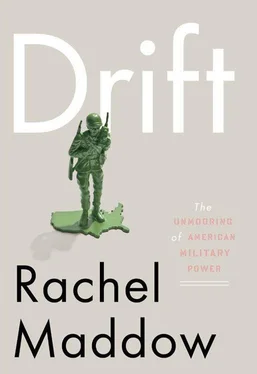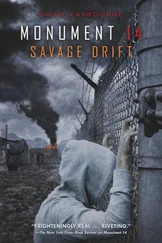“It woulda driven me mad,” Russell told Johnson. “It’s the only thing I’ve ever hit in my life I didn’t have some quick answer to, but I haven’t got one to this.”
But the seasoned senator also reminded Johnson that failing to mobilize the Reserves would send a signal to the Soviets, the North Vietnamese Communists, and the rest of the world that we lacked will. “It adds to ol’ Ho Chi Minh’s argument that we ain’t gonna stay in there, that we gonna pull out…. Call up the Reserves, they understand that language. They understood it in Berlin. They understand that.”
“Well, if I extend the enlistments and if I put a hundred thousand out there they’ll understand it,” Johnson answered with a chuckle, though he did not mean to amuse. “And I’m gonna step up my draft calls. Double ’em.”
The draft wasn’t new for Vietnam; it had been plugging holes in the active-duty armed forces since 1917. For a president trying to flesh out a Vietnam fighting force without causing too much consternation, increasing the draft seemed a better choice than calling up Reserves. In 1965, the Guard and Reserves were the things you quietly signed up for to avoid service, and Johnson was already hearing from congressmen, who were hearing from prominent constituents, who were in nowise interested in having their sons’ Guard and Reserve units called up to fight in some godforsaken war in the jungles of Southeast Asia. And Johnson agreed! This was, after all, not a major war, at least not a war with a major effect on the home front. And there was also Johnson’s hope that his war would be a US rout, soldiers in and out in a matter of months: Ho Chi Minh got anything to match this? Johnson supposedly bragged to reporters during a bathroom break.
But even as the war’s Phase II, “the preparing-to-win phase,” as Vietnam historian Neil Sheehan called it, stretched into its second and third years and then started to look like an ugly, viciously prosecuted, no-end-in-sight, preparing-to-lose phase, Johnson stubbornly refused to call up the Reserves, and stubbornly refused to come clean with the country that we—all of us—were in a real war. So from the first 3,500 combat Marines Johnson sent ashore near Da Nang on March 8, 1965, to support the first sustained bombing of North Vietnam to the 535,000 American troops who were in Vietnam at the end of his presidency, something like 1 percent would be Guard and Reserves. The active-duty armed forces shouldered the burdens of Johnson’s land war in Asia—fleshed out by draftees, chosen at random from among the ranks of young American men who were unable or unwilling to get themselves out of it.
Whether or not Johnson’s decision had any effect on the outcome of the war in Vietnam is debatable, and ultimately unknowable, but there was an enormous cost inside the United States—it tore the military from the heart of the country, and it tore the country from the heart of the military. One young company-commander-turned-novelist saw that wrenching in its inglorious entirety. Jim Webb showed himself to be an extraordinary soldier in Vietnam; he won two Purple Hearts, two Bronze Stars, a Silver Star, and, for bravery under fire, the Navy Cross. But what really set him apart was his remarkable acuity. From the darkest jungle trenches, the twenty-three-year-old lieutenant managed to apprehend the big picture. And in his Vietnam War novel, Fields of Fire , Webb distilled the national tragedy in pitch-perfect dialogue between a battle-tested regular Army NCO and a young lieutenant:
“I’ll tell you a little story, maybe it’ll make sense. When I came back from Vietnam the first time I went to the Reserve Training Center, like I said. It wasn’t really big over here yet. We all knew it would get bigger, though, and we figured Johnson would call up the Reserves. We kept telling all the Weekend Warriors that they’d better get their shit in one bag, because they were going to war. Like Korea. And it got bigger, but Johnson didn’t have the balls to call up the Reserves. Reserves can vote. And they drive airplanes for United. And they run businesses. Instead, Johnson just made a bigger draft, filled it with loopholes, and went after certain groups of kids.”
“You said yourself the kids were great.”
“It ain’t what happens here that’s important. It’s what’s happening back there. Shit, Lieutenant, you’d hardly know there was a war on. It’s in the papers, and college kids run around screaming about it instead of doing panty raids or whatever they were running around doing before but that’s it. Airplane drivers still drive their airplanes. Businessmen still run their businesses. College kids still go to college. It’s like nothing really happened, except to other people. It isn’t touching anybody except us. It makes me sick, Lieutenant…. We been abandoned, Lieutenant. We been kicked off the edge of the goddamn cliff. They don’t know how to fight it, and they don’t know how to stop fighting it. And back home it’s too complicated, so they forget about it and do their rooting at football games. Well, fuck ’em. They ain’t worth dying for.”
The American troops’ disenchantment with the country’s civilian cohort was real, but so was civilian disenchantment with the Vietnam War, and with the military itself. And it was not confined to student activists and peaceniks. The worst of the war had been beamed into middle-class living rooms all across America—the blood and gore, the death, the waste, the atrocities. The public’s idea of the country and what it stood for had taken a holy beating. One active-duty company commander who returned from Vietnam to a job at a recruiting station in Kansas City was stung by the overriding sentiment he found among his new neighbors. “This is a horrible war and our troops are doing terrible things over there,” they’d say, “but we know you’re not like that, Paul.”
Much as the military man tried—“I am them. I am typical. I am what the Marine Corps is all about”—he never felt able to convince his civilian friends that they had a military to be proud of.
Said one veteran: “There’s a wall ten miles high and fifty miles thick between those of us who went and those who didn’t, and that wall is never going to come down.”
We’d gone to war in Vietnam in a way that we’d never gone to war before, and no one liked how it turned out. So while we did what we’d done after every war, while we dramatically drew down ground troops in Vietnam—from 510,054 in 1969 to 212,925 in 1971 to 265 in 1973—this time the brass decided it would be done differently: in the future, presidents wouldn’t have the option Johnson chose. The next time America went to war, it wouldn’t be the military out there alone, “kicked off the goddamn cliff” as Webb’s NCO would say. Officially, the post-Vietnam restructuring of the military was called the Total Force Policy; unofficially, everyone called it the Abrams Doctrine.
Creighton Abrams was the US commander in Vietnam from 1968 to 1972, while troop strength there went from more than half a million to one-fifteenth of that number. Then he returned to Washington, where he served as Army chief of staff from 1972 until he died in 1974. And as chief, while winding down that increasingly unpopular and costly war, Abrams restructured the United States Army in a way that made it harder for a commander in chief to go to war, or at least harder to fight a war without having first sought the support of the American people for that war.
It’s hard to make the case that Abrams began his reorganization with the intent to remake the nation’s political structures, or with the express purpose of closing off options available to America’s elected officials. He certainly never talked about it that way. His overriding concern was the restoration of the institution to which he’d devoted his entire life: the United States Army. Vietnam had bled that institution dry. Its combat readiness around the world had been greatly diminished; the Seventh Army in Germany had become little more than a pricey replacement depot for Southeast Asia. The Guard and Reserves were in shambles, viewed as a haven for shirkers. And Abrams had seen firsthand how even the soldiers who had served honorably and proudly in Vietnam were demoralized. He personally knew the sting of civilian criticism: Johnson’s successor, Richard Nixon, had trouble hiding his contempt for Abrams. In 1971, Nixon said to Secretary of State Henry Kissinger that Abrams “had his shot” to win a military victory in Vietnam, “and he’s not going to get any more.” The following year, he wrote to Kissinger of Abrams, “Our military leadership has been a sad chapter in the proud military history of this country.”
Читать дальше












